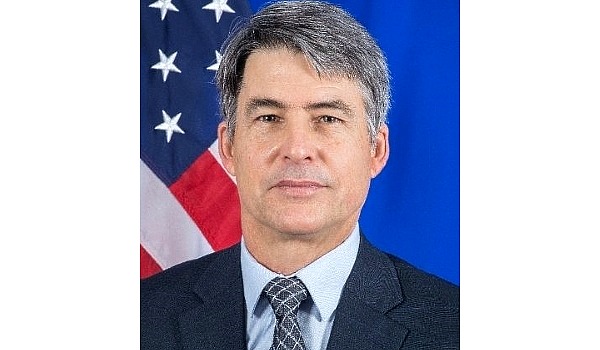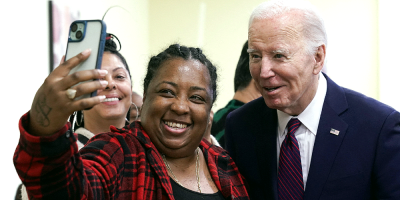
After nearly two challenging years of battling COVID, it is thrilling to see Malaysia’s vitality returning.
As vaccination rates rise, COVID cases plummet, and businesses open their doors, it’s clear that Malaysia is ready to get back to work and rebuild.
The pandemic has illustrated how interconnected we are. COVID presents an unprecedented challenge for us all, and the United States has been Malaysia’s partner in fighting the pandemic from the beginning.
Last year we donated emergency supplies of COVID testing kits and personal protective equipment. This July, our government was proud to donate 1 million Pfizer vaccines to Malaysia. Last month we gave an additional 3.3 million ringgit to help vaccinate hard-to-reach and vulnerable groups.
Just as important as our strong government-to-government relationships are U.S.-Malaysian business relationships. During the COVID crisis, many U.S. companies stepped up their corporate social responsibility donations through the AmCham Cares campaign – helping Malaysia with necessary medical supplies where needed most. U.S. companies operating here have led the way in providing 7 million ringgit to support local communities throughout the COVID pandemic.
U.S. companies are also playing a strong role in Malaysia’s post-COVID economic recovery. They employ skilled Malaysians who make a significant share of Malaysia’s electronics and other exports.
More importantly in my view, U.S. companies can be key partners in Malaysia’s advancing economic development over the next decades, including in the digital, health and advanced-manufacturing areas.
As the shadow of COVID gradually lifts, our companies are eager to pivot to the recovery phase, a challenge our two countries both need to face. President Biden’s White House has vowed to “Build Back Better” – a vision Malaysia shares through the National Recovery Plan, the Twelfth Malaysia Plan, and the new National Trade Blueprint.
As one of Malaysia’s top investors, the United States is eager to play a part in building Malaysia back better. U.S. Commerce Secretary Gina Raimondo’s planned visit to Malaysia this week will pave the way for a stronger U.S.-Malaysia bilateral commercial relationship as we explore ways to rebuild post-pandemic.
U.S. companies in Malaysia are already focused on developing high-tech, innovative products and technologies from jet engines to cutting edge cancer treatments. Looking at the longer term, we want to deepen our partnership with Malaysia as it looks to the future and faces the challenges ahead, from economic development and supply chain resilience to climate change.
The U.S.-Malaysia trade partnership is a mutually beneficial one. One example of how our partnership works is Phoenix, Arizona-based onsemi, whose local subsidiary is the largest employer in Negeri Sembilan, providing over 6,000 jobs. The company has invested $650 million over two decades in Malaysia.
U.S. companies like onsemi invest and create jobs in Malaysia. At the same time, the products these companies manufacture are vital to the global supply chain that both our nations depend on. The semiconductors made in Negeri Sembilan are the very ones that keep U.S. companies – from the tech giants of Silicon Valley to automakers in Detroit – up and running and American workers employed.
We recognize that the most valuable investment we can make is in Malaysia’s people. U.S. companies are focused on making high quality investments that employ thousands of Malaysians and provide workers with new, cutting-edge skills. For instance, Microsoft recently announced that its first data center region in Malaysia will help generate an estimated US $4.6 billion in revenues for local partners and consumers over the next four years and train one million Malaysians by the end of 2023.
Investing in and helping to build Malaysia’s human resources is also a priority for our government. This year, over 5000 Malaysians are attending school in the United States. Our educational exchange programs – from our Young Southeast Asian Leaders Initiative to our Fulbright programs – help to foster Malaysia’s future leaders.
Through these programs, Malaysian leaders and scholars are able to study at U.S. institutions and spend time at U.S. Companies.
U.S. companies want to invest in Malaysia and predictability and transparency continue to be key to boosting investor engagement and confidence. To attract both new investment and re-investment, company representatives tell me the Government of Malaysia needs to be proactive in discussing and resolving investment issues, company-by-company. Malaysia has also taken important steps in creating national action plans to combat child labor and trafficking in persons and we support the implementation of those plans and the protection of worker rights.
The U.S.-Malaysia business partnership builds on a legacy of decades of shared growth and prosperity that provides us the means to help tackle our most pressing challenges, including climate change.
Malaysia’s plan to reach net zero emissions by 2050 is one of the most ambitious in the region. The Biden Administration supports this goal and is placing climate change at the center of its foreign policy.
I am proud to see U.S. companies in Malaysia taking significant steps toward reducing their emissions and helping Malaysia reach its net zero goals by taking a range of actions from building solar plants to exploring carbon capture and sequestration projects.
Malaysia’s ambitious MyDigital plan outlines a framework that would make this country a leader in digital technology and U.S. companies are positioned to be key partners in bringing this plan to life. In addition to the Microsoft investment mentioned above, another two U.S. companies have received conditional approval for additional hyper-scale cloud services centers.
These new, forward-looking ventures build on the solid foundation of our past success as trading and business partners. I’m confident that U.S. businesses can continue to play a vital part in Malaysia’s advancing economy for decades to come, for the benefit of the people of both of our countries.
(Brian D. McFeeters is the United States Ambassador to Malaysia.)
ADVERTISEMENT
ADVERTISEMENT








































